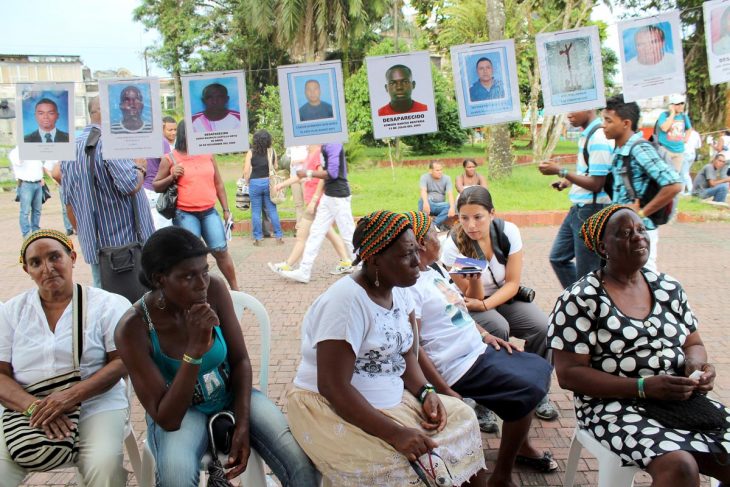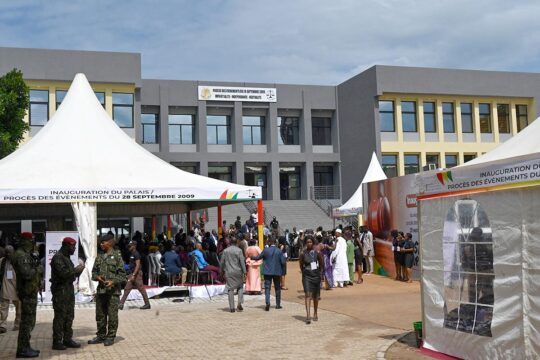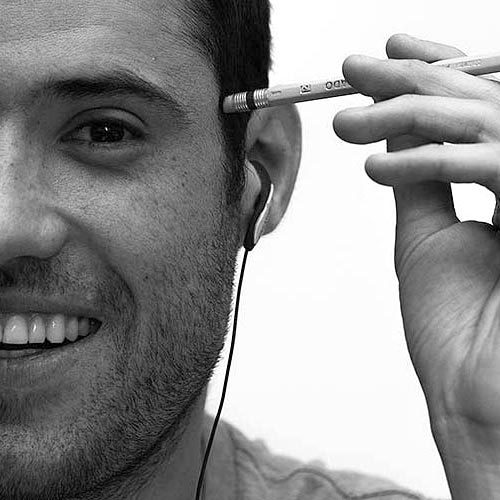Differing factions, from President administration to opposition parties, agreed. This unforeseen compromise marks a welcome break from the political bickering that has swept through the country over the past couple of years.
Two weeks ago, President Iván Duque announced that he will seek an urgent extension of the victims’ bill for an additional 10 years after it expires in 2021, guaranteeing reparation policies continue throughout his 4-year period and after it. “As a government, we want to keep our word to victims, take care of them with a range of programs and make sure redress becomes a reality,” he said in a speech.
This was a somewhat surprising turn of events, given that neither he or his government had addressed the issue publicly. Just the day before, his finance minister had warned during a Constitutional Court hearing that the country’s fiscal situation is tight and that continuing reparations would amount to two years of tax collection. One day before that, Duque’s interior vice minister told Congress that the government would await the ruling from the Colombia’s top court before making any decision.
These shifting positions underscore how the issue quickly gained prominence in the political debate. This happened after two former cabinet ministers filed a suit against the law, seeking to persuade Colombia’s Constitutional Court to overturn term limits for the bill, a year and a half before its expiration.
Ten years was not enough
Their argument is that ensuring the bill’s future is central to implementing the peace deal. “The transitional justice system was created on the basis that this crucial tool was already in place. It’s what guarantees that the deal’s provisions on victims are fulfilled,” says Juan Fernando Cristo, who co-authored the bill when he was a senator.
“Ten years seemed like a reasonable time frame back then, but it clearly wasn’t,” says Guillermo Rivera, also a former lawmaker and his fellow co-author. Almost 8,9 million persons – a fifth of Colombia’s total population – had been officially recognized as victims as of October 2019, by far surpassing even the most liberal projections of 5 million victims.
Both of them have been political allies of former president Juan Manuel Santos and occupied top jobs in his administration: Cristo was Interior Minister for three years, while Rivera served as human rights advisor and then succeeded his friend as minister.
The bill’s legacy
The victims’ bill was one of former President Santos’s first promises after coming into office in 2010. After its approval, Colombia created a number of institutions tasked with identifying and repairing victims. At least 761,000 victims have received economic reparations, according to the Victims Unit in charge of serving this population. A successful land restitution program has allowed 9.845 peasant families to recover the farms forcibly taken away from them, under a new specialized justice system designed to reverse land dispossession.
As a result of the bill, victims became more visible actors in Colombian society. At least 52 victims ran for office in local elections four years ago. More than 60 exhaustive reports detailing specific cases of human rights violations have been published over the past decade by the National Centre for Historic Memory. In many ways, it was a significant transitional justice tool created even before violence had ended.
The bill was crucial for another reason: it acknowledged for the first time in a decade that Colombia had endured a brutal internal armed conflict, breaking with former president Álvaro Uribe’s vision – very much in line with the Bush doctrine – that the country was under a terrorist threat.
Although lawmakers didn’t know it at the time, a small team of civil servants designated by Santos was already testing backchannels with FARC to explore whether it was possible to open peace talks with that Marxist guerrilla group. These only materialised in late 2012, but the victims’ bill and the way it defined Colombia’s internal situation were instrumental in legally paving the way for a negotiated solution.
“If you eliminate the bill or any of its programs, the entire scaffolding would be left hobbling”, Santos’s former peace commissioner and lead negotiator Sergio Jaramillo told the Constitutional Court. “We must think of the different elements of the agreement like cogs that, rotating together, move peace forward like a clock. This is why many provisions that in principle do not seem like it, have in fact a restorative character.”
Indeed, the entire accord seeks to strengthen victims’ role in a peacebuilding scenario. The transitional justice system is centred on victims’ rights to truth, justice and redress, linking any legal benefit for perpetrators to their obligatory acknowledging of responsibility and direct contributions to redress those who suffered.

If institutions like the Victims Unit disappear, it would be up to the Special Jurisdiction for Peace to not only order but implement and oversee restorative actions.
Likewise, the peace deal also stresses the importance of stepping up collective forms of redress that would allow reaching a higher number of victims.
This is important given that the current model privileging individual economic reparation has proven costly and very slow. So far only 12% of eligible victims have received compensations, according to a congressional report. And neither administration would be able to clear the backlog within victims’ lifespans: at Santos’s rate of redress it would have taken 62 years and at Duque’s current rate it would demand 120 years.
An adjustment in the way redress is understood would probably have a greater chance of satisfying more victims’ rights. To enable this, the accord’s community-based restorative actions include ceremonies in which perpetrators acknowledge their responsibility and ask victims for forgiveness, seats in Congress for the 16 areas of the country most affected by violence and ‘territorial development plans’ (or PDETs in the peace deal’s jargon) which would provide those same regions with public infrastructure projects identified by its inhabitants.
Victims’ doubts on Duque
Even though Duque committed to extending the victim’s bill, many prominent victims still feel wary of the visible differences between his discourse and that of his ruling party the Democratic Center.
They are especially concerned by senator Maria Fernanda Cabal’s draft bill to introduce significant changes in the land restitution program. One proposed amendment would eliminate the reverse onus clause in the bill, that shifted the burden of proof from dispossessed peasants to the people who bought or kept their lands. Cabal, who claims hundreds of decent farmers have been stripped of their legitimate property, openly rebuked Duque’s idea of extending the bill. Her idea is controversial even within the government.
Victims also cite previous stances by José Obdulio Gaviria, another senator from the ruling party and a close confidant of former president Álvaro Uribe, as reasons for concern. Gaviria, who argued before the Constitutional Court that this issue is should be solely addressed by Congress, is well known for having disputed the view a decade ago that Colombia had a humanitarian crisis due to forced internal displacement, contending that these were voluntary migrants. He was also one of Uribe’s top political advisors when his administration blocked passage of a victims’ bill in 2009 under fiscal concerns.
Although Duque’s party does not hold a majority in Congress, they fear that anything can happen if the entire bill is renegotiated.
“The victims’ bill meant a qualitative jump in how we understand the reparation of victims, including those from ethnic minorities. Despite any weakness it may have, losing it would place us back a decade in terms of earned rights,” says Rodolfo Valdés, an Afro-Colombian victim’s leader who asked the Constitutional Court to warn lawmakers that no regressive changes can be introduced into the law.
“Most people wishing to recover their land are humble peasants with no means to hire a lawyer. If everything is reversed, these claimants will not have access to justice. This is why we demand an extension, but without any regression in our rights,” says Odorico Guerra, a leader from the national victims’ assembly.
“My concern is that political sectors who contend there was no armed conflict can mutilate elements like the land restitution program, the victims’ roundtables that ensure our participation in public affairs or the ethnic chapter of the peace deal,” Valdés adds.
Whether victims’ fears are realistic is difficult to gauge. Duque has pledged to implement the peace deal abroad and has stressed that he will support reincorporation of former combatants. He also tried to unsuccessfully veto parts of the law governing the transitional justice and has returned to Uribe’s narrative on the inexistence of the conflict. In his speech promising to extend the bill, he underscored that it would benefit victims of “terrorism and violence”.
As soon as Duque brings his new victims’ bill to Congress in early 2020 it will be possible to see if – as Rodolfo Valdés highlights – “what is at risk is the acknowledgment of victims and seeing if we return to where we were a decade ago”.







